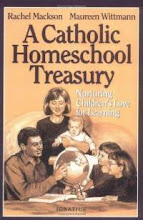Note: Dr. Rioux is teaching ST. THOMAS ON THE HUMAN PERSON for Homeschool Connections in the Fall 2016 semester. Dr. Rioux also offers several outstanding philosophy and logic courses through our Unlimited Access program.
This article is an excerpt from the book Why Should I Learn This. To order click here:
Why Should I Learn Philosophy?
Jean Rioux, Ph.D.
Aristotle once observed that philosophy is inevitable. Absent a conscious and deliberate reflection upon the larger questions in life, one will invariably come to some sort of conclusion about them. A sound conclusion? Nothing guarantees that, and much harm has come from bad philosophizing. The point is that unless we take it upon ourselves to philosophize well, we will definitely end up doing it poorly.
This same sentiment is echoed by Pope St. John Paul II in his encyclical, Fides et Ratio1. He notes that we cannot avoid coming to the world with questions; we are natural wonderers. Some of these questions have only a small impact upon our loves and our lives if they remain unanswered. Others, however, end up defining who we are and how we live. Is there a God? Is there a life following the present one? How ought I to live? What does being fully and authentically human require of me? This is a perilous prospect. If the Pope is right, then we will all confront such questions at some point; how we answer them determines whether we shall be happy or not, good folk or bad, hopeful or despairing, pious or impious.
Granted that these are questions we all must face, why do we need to study philosophy to address them? Why can’t we take our answers from the society in which we live?
The first thing to note is that society’s answers did not themselves spring from the void. They are the inevitable result of philosophical principles defended and embraced by thinkers of the past. Some (for example, don’t do unto others as you would not have them do unto you) are nearly universal and have stood the test of time. Others (for example, we can know an action is good by observing its outcomes) are highly questionable, though many people live by them. It takes discernment to distinguish among them, and there we are, philosophizing.
Another, and obvious, problem is that the there is not just one such norm; societies and their guiding principles vary from here to there and from then to now. Whose answers will you choose to guide you? To answer that question itself requires thoughtful reflection, and there we are again, philosophizing.
Further, some norms and values, when measured against the standard for life set out by the Christian faith, run counter to Christian hopes and beliefs; indeed, they often flat out contradict one another. Apart from separating the wheat from the chaff through philosophizing, surely part of an authentic Christian life includes helping those who have followed the wayward paths set out for them by the world, and this begins with an understanding of the origins of such views. And there we are, again, philosophizing.
Aristotle’s point, then, is pretty clear: either one will end up unconsciously embracing faulty philosophical principles (given our fallen nature—of which Aristotle seems to have had some faint inkling—this seems to be the default), or one must rise to a deliberate consideration of these same questions, working them out, as St. Thomas More was to have said, “in the tangle of his mind.”2
On the other hand, beyond reason, we hold, there’s faith. Surely it provides sound answers to all these foundational questions. What need is there for philosophy?
Faith is a sure guide. And there are many whose simple faith leads them with sure steps to a blessed life here and in the life to come.
Still, as Pope St. John Paul II is sometimes quoted, following the ages-old tradition of the Church, faith seeks to understand, and with such knowledge comes a deeper love—for God and for neighbor. There is a good reason why the Catholic Church educates its priests, not only in theology but in philosophy. Its greatest theologians, St. Augustine, St. Anselm, and St. Thomas Aquinas were also students of philosophy and philosophers themselves. If a properly philosophical account of God, our neighbor, and one’s self is the inevitable framework with which the human person comes to a life of faith, then not just any philosophy will do. Some philosophical views present principles or conclusions which conflict with authentic faith, and a life lived by two different, conflicting sets of guidelines ends up neither here nor there.
For all these reasons, then, one ought to study philosophy. It is, without a doubt, the most ancient of human studies. It is also time well spent, and most closely fitted to us as rational beings, made in the image of an omniscient God.
About the Author
Dr. Jean Rioux received his BA from Thomas Aquinas College, and the commencement speaker was Blessed Teresa of Calcutta. Jean received both his MA in Philosophy and Ph.D. in Philosophy from the University of St. Thomas in Houston. He is currently the Philosophy Chair at Benedictine College in Kansas, where he received the Distinguished Educator of the Year award. Additionally, he teaches philosophy to high school students for Homeschool Connections. Jean has published books on logic and natural philosophy, including Nature, the Soul, and God: An Introduction to Natural Philosophy. His articles have appeared in The Thomist, Aquinas Review, Review of Metaphysics, and International Philosophical Quarterly.
Dr. Rioux offers several philosophy and logic courses at Homeschool Connections including Ethics, Paradoxes and Fallacies, What Do Philosophers Do and How Do They Do It, Introduction to Early Modern Philosophy, and more. Dr. Rioux has a gift of making philosophy understandable and enjoyable to the average teenager, and his classes provide an excellent foundation for college and beyond.
Dr. Rioux lives in northeast Kansas with his wife, Maria, and their eight unmarried children. One married daughter lives just a half mile from their renovated farmhouse. The Riouxs have been developing their own curriculum and educating their children at home for over twenty-five years.
















